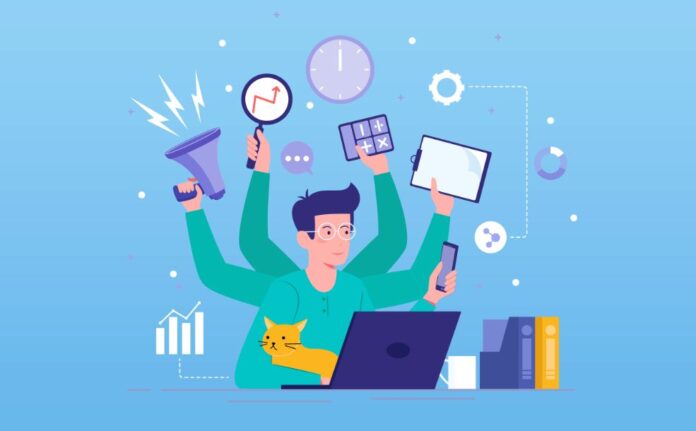How the era impacts our well-being partially relies upon whether or not it strengthens our relationships. Everyone’s involved in technology approximately smartphones. Headlines like “Have smartphones destroyed a generation?” and “Smartphone dependency will be converting your mind” paint a bleak photograph of our cellphone dependency and its long-time period outcomes. This isn’t a brand new lament—public opinion at the arrival of the newspaper involved that human beings could forego the stimulating pleasures of early-morning communication in want of studying the daily.
Is the tale of the era genuinely that bad? Certainly, there are a few motives to worry about. Smartphone use has been connected to critical issues, which include dwindling interest spans, crippling melancholy, or even improved occurrence of mind cancer. Ultimately, though, the equal issue comes up once more and once more: Smartphones can’t be right for us, due to the fact they’re changing the actual human connection of the coolest antique days.
Everyone’s heard how today’s young adults simply take a seat down collectively in a room, texting, as an alternative to truly speaking to every differently. But may want to the one’s young adults genuinely be getting something significant and actual out of all that texting?
The technological know-how of connection
A brief look at the studies on era-mediated interplay well-known shows ambivalent literature. Some research display that point spent socializing online can lower loneliness, boom wellbeing, and assist the socially demanding discover ways to connect with others. Another research advocate that point spent socializing online can motivate loneliness, lower well-being, and foster a crippling dependence on era-mediated interplay to the factor that customers pick it to face-to-face communication.
It’s tempting to mention that a number of those research ought to be proper and others wrong, however, the frame of proof on each facet is a bit too sturdy to be swept beneath the rug. Instead, the effect of the social era is greater complicated. Sometimes, superficially comparable behaviours have essentially unique outcomes. Sometimes online socialization is right for you, every now and then it’s bad, and satan is total withinside the details.
This isn’t a singular proposition; after all, conflicting outcomes commenced performing in the first few research into the net’s social implications, again withinside the 1990s. Many human beings have advised that to apprehend the outcomes of online socialization, we want to dig deeper into situational elements and circumstances. But what we nonetheless need to do is pass past the popularity of the hassle to offer an answer: When, how, and why are a few online interactions great, at the same time as others are dangerous?
The interpersonal connection behaviours framework
As a scientist of near relationships, I can’t assist but see online interactions otherwise from thinkers in different fields. People construct relationships via way of means of demonstrating their know-how of every different’s desires and perspectives. A cyclical method that brings them nearer collectively. If I inform you of my secrets, and also you reply supportively, I’m more likely to speak in confidence. To you once more—and also you, in turn, are more likely to speak in confidence to me.
In this manner that on every occasion human beings communicate to every different, a possibility for courting boom is unfolding. Many times, that possibility isn’t taken; we aren’t approximately to have in-intensity communication. With the barista who asks for our order. But the connection is usually theoretically possible, and that’s proper whether or not we’re interacting online or face-to-face.
Close relationships are the bread and butter of happiness—or even health. Being socially remoted is a more potent predictor of mortality than is smoking a couple of cigarettes a day. If we need to apprehend the function era performs in our well-being. We want initially the function it performs in our relationships.
Era-mediated interactions
And it seems that the form of era-mediated interactions that result in high-quality consequences are precisely the ones that can possibly construct more potent relationships. Spending some time online via way of means of scheduling interactions with human beings you notice day in and day trip appears to pay dividends in improved social integration. Using the net to make amends for being lonely simply makes you lonelier. The usage of the net to actively are seeking for out connection has the other impact.
On the alternative hand, era-mediated interactions don’t genuinely cope. With our near relationships don’t appear to do us any right—and may, in fact, do us harm. Passively scrolling thru your Facebook feed without interacting with human beings. Has been connected to reduced well-being and improved melancholy post-Facebook use.
That form of passive utilization is a great instance of “social snacking.” Like ingesting junk food. Social snacking can quickly fulfil you, however, it’s missing in dietary content. Looking at your friends’ posts without ever responding may make you sense greater links to them. However, it doesn’t construct intimacy.
Passive engagement has the 2nd downside, as well: social comparison. When we examine our messy lived reviews to others’ curated self-presentations. We’re possible to be afflicted by decreased self-esteem, happiness, and well-being. This impact is most effectively exacerbated whilst we eat human beings’ virtual lives without interacting with them. Making all of it too smooth to overlook the much less photogenic moments in their lives.


